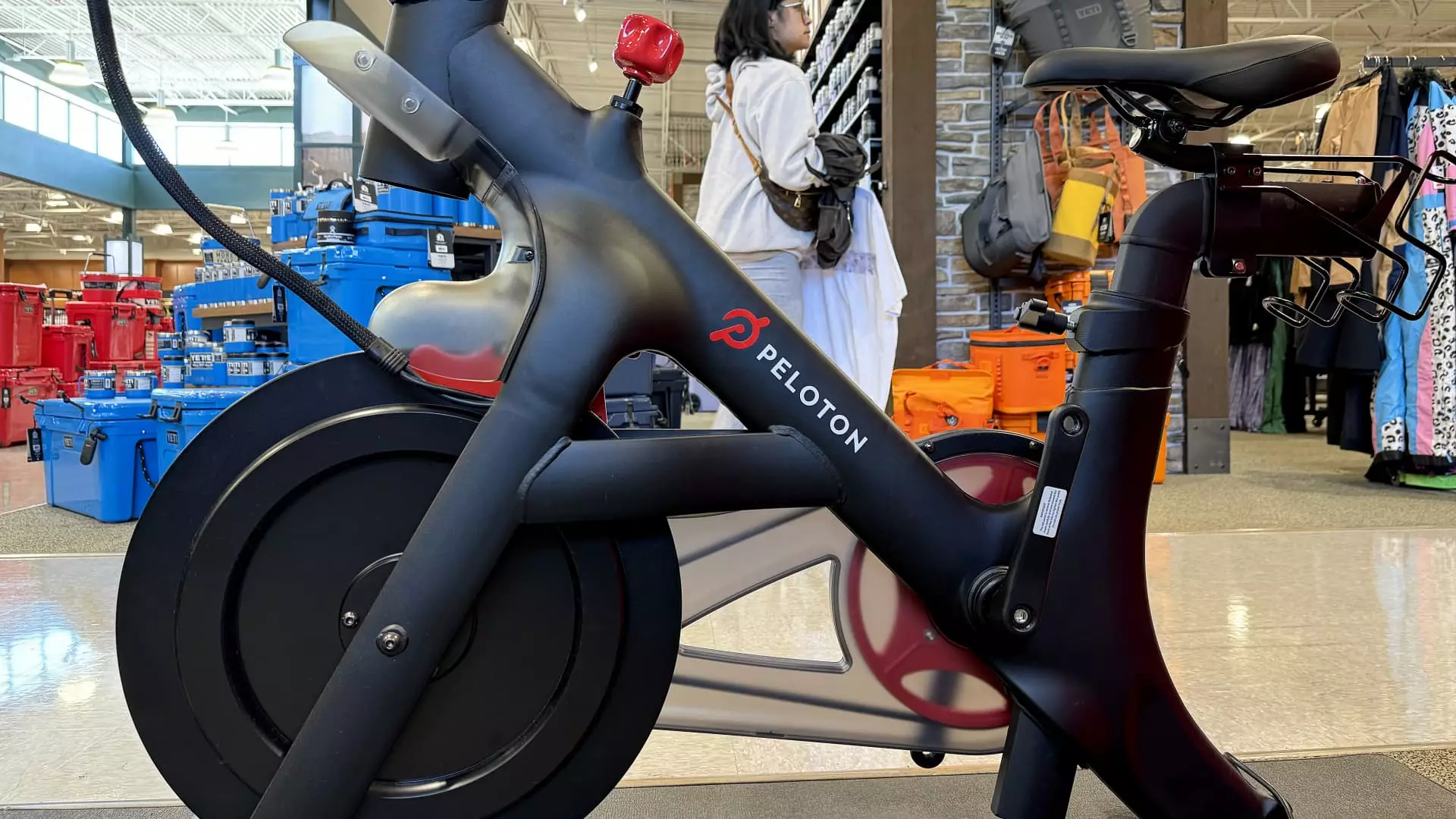In an era where sustainability has become paramount, Peloton’s recent launch of its resale marketplace, Repowered, signifies a daring pivot towards reclaiming its growth trajectory. By allowing users to buy and sell used Peloton equipment, the company is not just tapping into a burgeoning market but also addressing the overlooked issue of idle fitness gear cluttering homes across the nation. This innovative move reflects a profound understanding of consumer behavior—many individuals invest heavily in equipment only for it to transform into an expensive clothes rack. By leveraging an AI tool that helps assess the value of used gear, Peloton is bringing a much-needed digital touch to the once cumbersome process of finding a buyer or seller.
Utilizing Technology for a Sustainable Future
What sets Repowered apart from platforms like Facebook Marketplace is its integration of technology to enhance user experience and trust. The generative AI tool promises to streamline the valuation process, thereby reducing the guesswork often associated with selling used items. While users still have the autonomy to set their prices, the company’s AI recommendations ground decisions in real data rather than subjective sentiment. This commitment to technological innovation not only adds convenience but also fosters a community committed to sustainable practices, encouraging buyers and sellers to keep equipment in use rather than relegating it to basements or garages.
Economic Implications for Sellers and Buyers
With sellers reaping 70% of the sales price, Peloton’s model aligns incentives towards engagement and transaction completion, creating a lucrative opportunity for those looking to offload their equipment. The added benefit of discounts on new purchases provides a compelling reason for sellers to participate. On the buyer’s side, reducing the activation fee signals Peloton’s acknowledgment of customer sensitivity to price—an astute recognition in today’s economically cautious climate. By making it easier for users to acquire high-quality fitness equipment at a more accessible rate, Peloton not only expands its customer base but also strengthens brand loyalty.
Challenges and Market Competition
However, as Peloton ventures into this competitive arena, it must navigate potential pitfalls. The resale market is already saturated with players like Trade My Stuff, which has carved out a niche for itself among avid fitness enthusiasts. While Peloton insists Repowered is not collaborating with Trade My Stuff, the competitive landscape will require them to continually innovate and differentiate their offering. The key will lie in maintaining user trust and ensuring a transparent, user-friendly interface that stands out amid the noise of established platforms.
The Cultural Shift Towards Resale
Culturally, the acceptance of second-hand goods signifies a broader transition as society increasingly values sustainability over consumerism. Peloton’s decision to integrate a resale marketplace aligns with this zeitgeist, illustrating how even fitness giants can adapt to meet the changing needs of consumers. Furthermore, this venture speaks volumes about the company’s approach to adapting its business model in the face of declining subscription revenues, as seen in reports of higher churn rates among those who leased rather than purchased Peloton’s equipment. This shift demonstrates that adaptability is not merely an option but a necessity for survival in today’s dynamic marketplace.
The Road Ahead for Peloton
As Repowered launches beta versions in major cities like New York, Boston, and Washington D.C., the potential for national expansion looms on the horizon. The implications of this marketplace reach beyond mere financial gain; they represent an opportunity for Peloton to re-establish itself as a leader in fitness innovation. However, the success of Repowered will ultimately depend on the company’s ability to listen to its community, adjust its strategies accordingly, and deliver a platform that genuinely meets the needs of both sellers and buyers alike.
In a world increasingly defined by the search for sustainability and community-driven commerce, Peloton’s Repowered might just be the regeneration the company needs—a chance to reinvent itself while fostering a more responsible and engaged fitness culture.


Leave a Reply